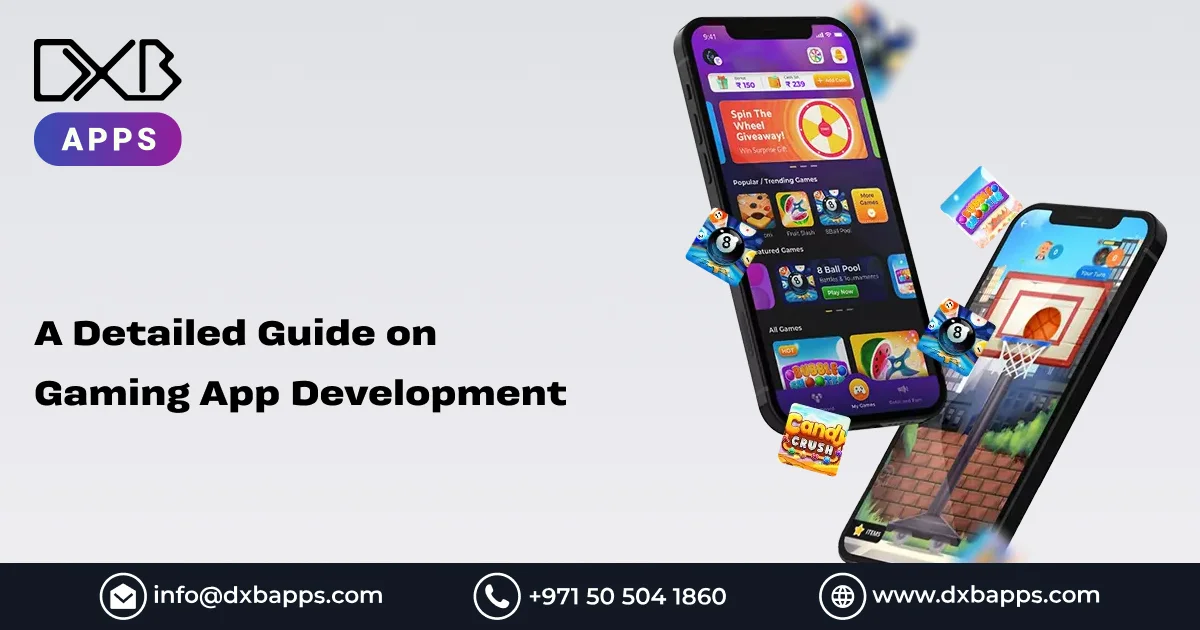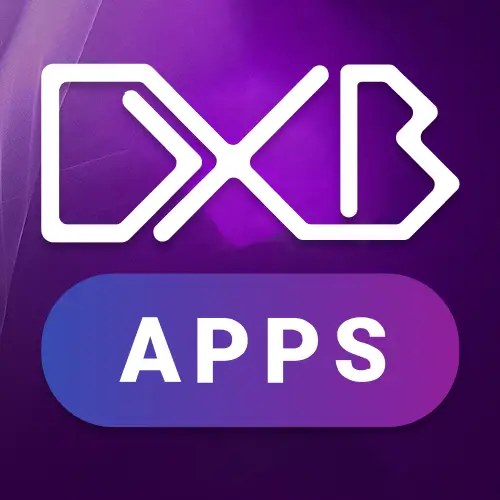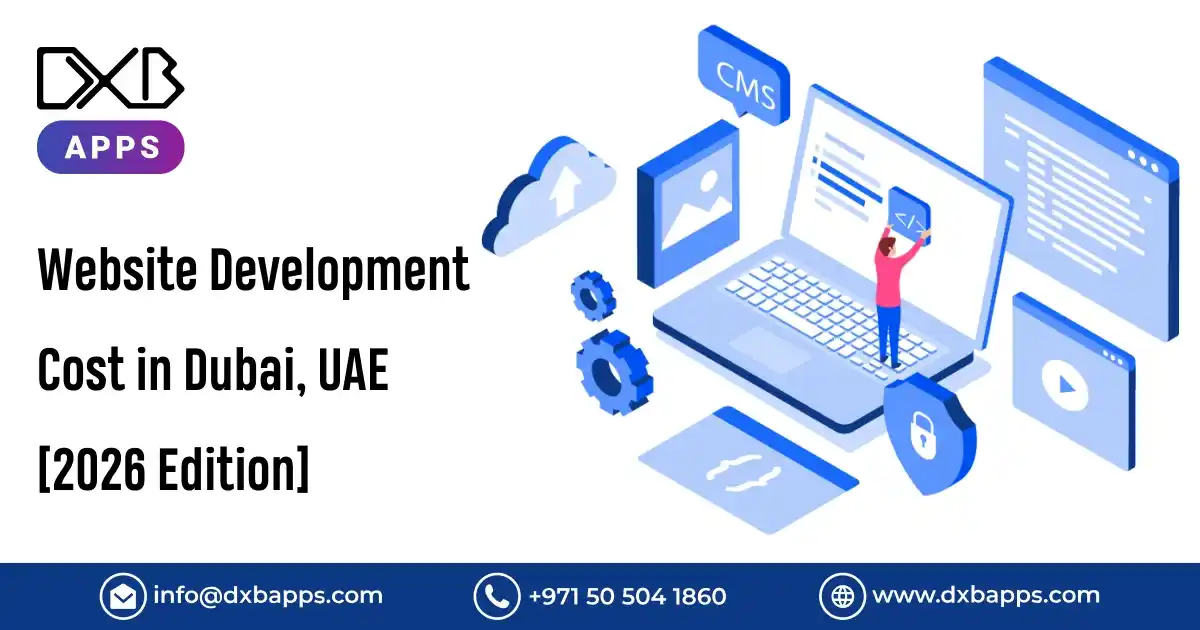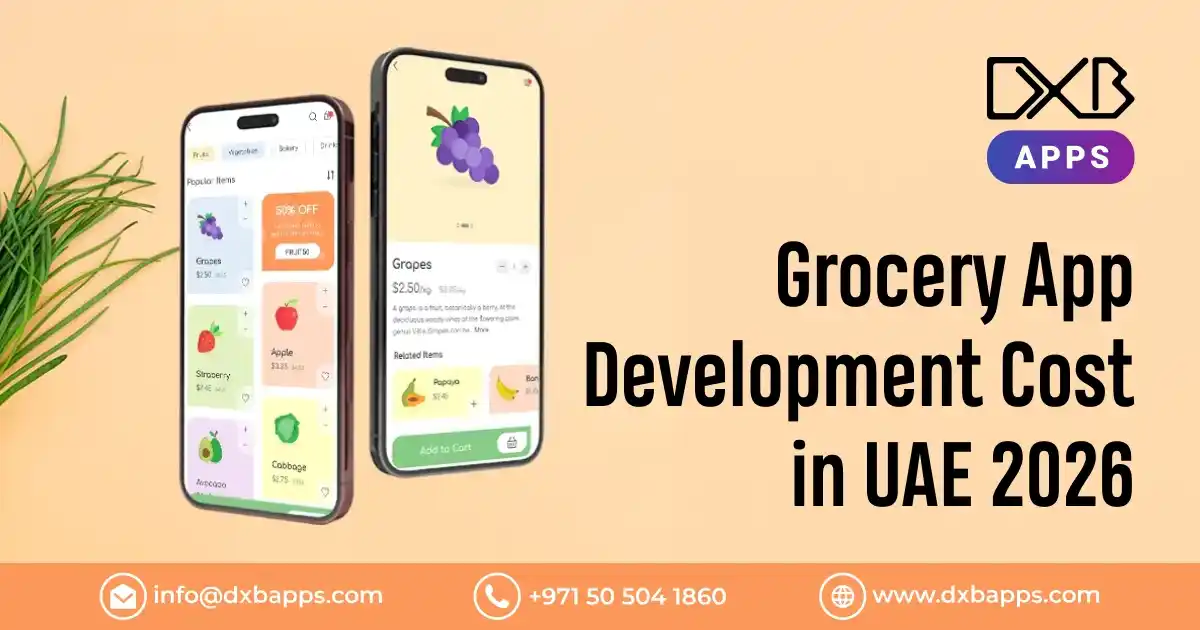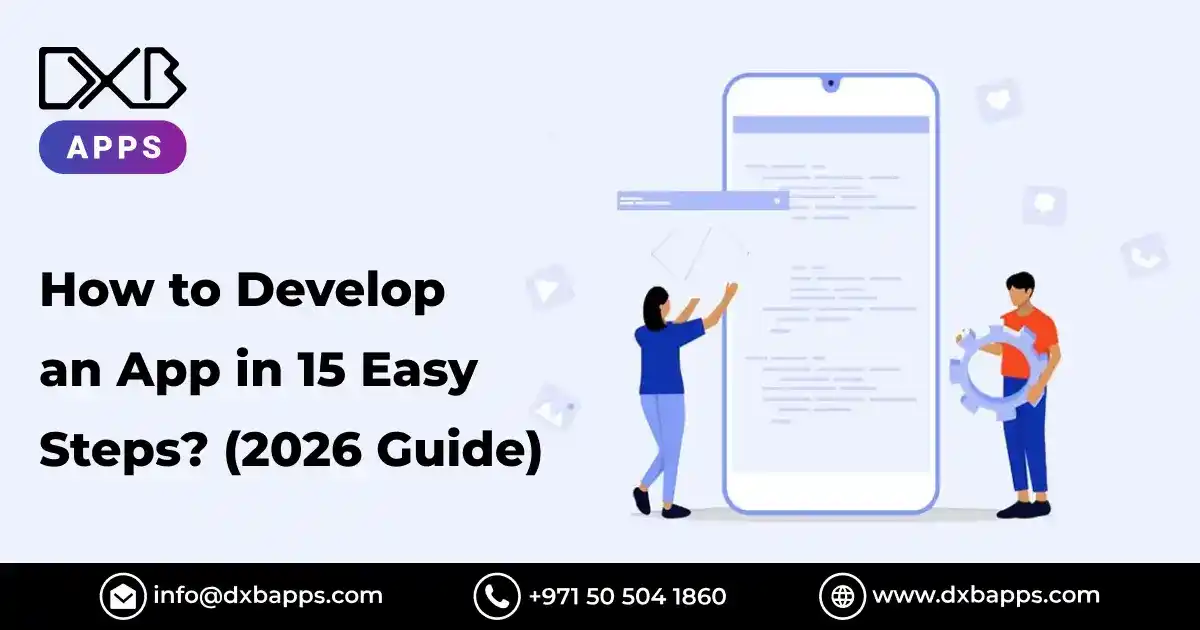Creating a gaming app has been the major Mobile Game App Development trend. According to CTN News, growth related to gaming apps is noted to have occurred in line with statistics showing that, during the COVID-19 quarantine, people seemed to look for as many things as possible to get entertained while staying for long hours at home.
25% of iOS apps downloaded are games, and 21% of Android apps.
These numbers depict how the domain of gaming apps is only on the rise and speak further about the competition levels. Entrepreneurs must clearly understand and capitalize on the trends to make a successful gaming app.
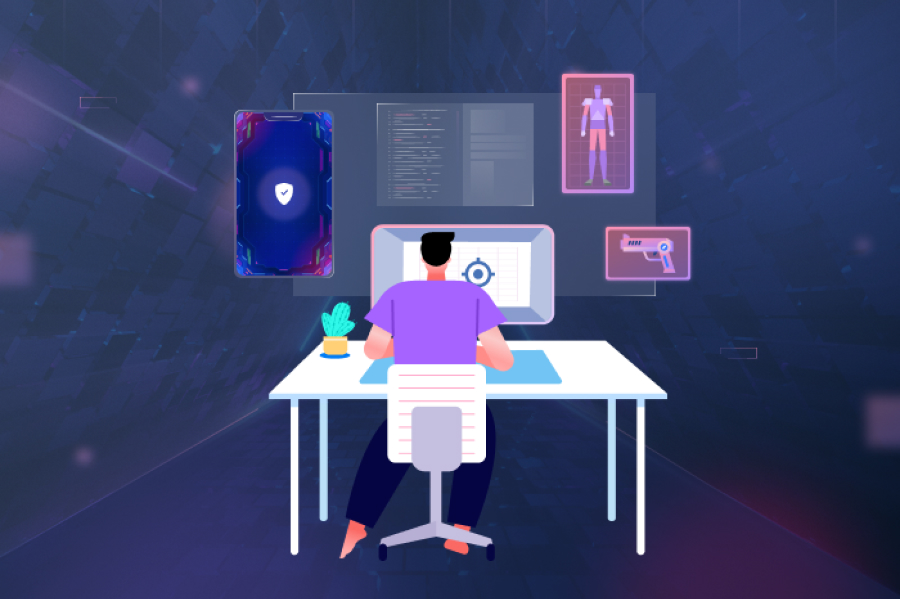
Types of Gaming Apps
The accomplishments of the gaming industry rest on the success attributed to the many types you can find. The knowledge of these types will help you select the ideal genre to implement in your app:
1. Betting Apps:
Very popular in the US and countries where sports gambling is legal; examples include Betway, BetUS, and 1xBet.
2. Adventure Apps:
These are the ones that specifically provide the gamer or user with some challenging gameplay and highly engaging experiences that remain popular.
3. Arcade Gaming Apps:
These kinds of Mobile Game Development focus mainly on the gameplay rather than the content.
4. Role-Playing Games:
Apps that are more story-centric with long gameplays; examples include Ragnarok and Dungeons and Dragons.
5. Multiplayer Online Battle Arena Apps:
The primary goal in this competitive game setup is for two players or teams to try to capture the other team's base while the other tries to protect it. Some cases include PUBG, Arena of Valor, and Mobile Legends, which are famous globally.
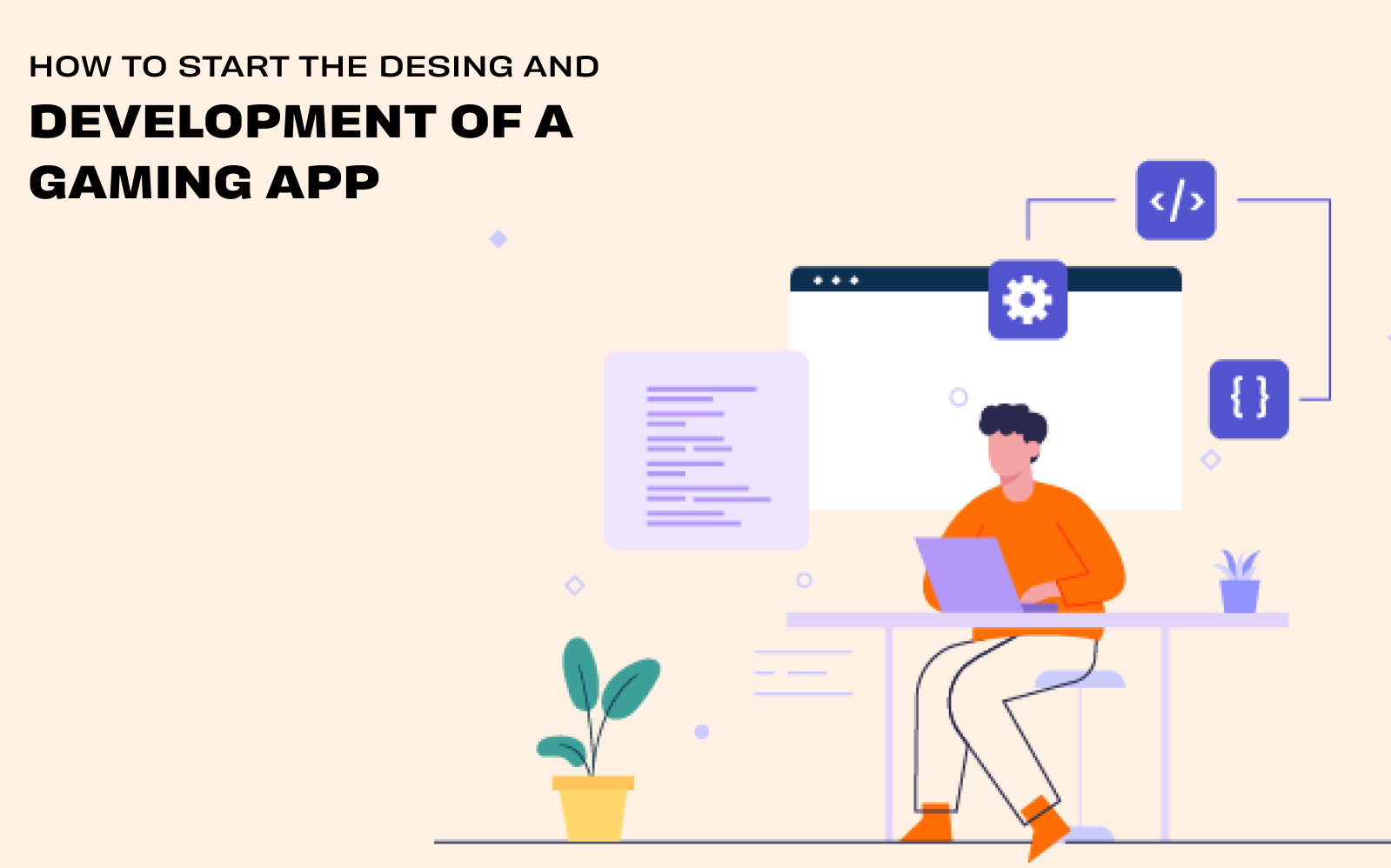
Key Development Steps
The road to developing a successful gaming app is no less crucial, for these Mobile Game App Development are very considerable for a more attractive and appealing product. Here are the details of each stage of the development process:
1. Idea
Any successful game app for Android starts from a good idea at its core. To build a firm idea as a Mobile Game Development Company,
Market Research Trends:
In the first section, we examine current trends within the gaming industry. Identify popular genres, trendy features, and what players seek in new games. For example, the rise of games based on augmented reality, such as Pokémon GO, offers vivid experiences.
In the first week after buying a new phone, 62% of users install a game.
Research Competitors:
Research the games currently in the selected category. Note their pros and cons, user feedback, and game mechanics. This will help identify the market gaps and possible areas for innovation.
Define Your Target Audience:
Knowing who your gamers are is likely to help in a big way. Define their preferences, age group, and even gaming habits. For example, hardcore gamers seek challenges during gameplay, whereas casual gamers may want easy-pick-up kinds with short play sessions.
2. Develop a story
An exciting story will very often retain the player:
Tell A Compelling Story:
Games like PUBG and Clash of Clans engage players with interactive stories and rich background details. Craft a narrative that, beyond anything else, sucks players right into the very world of the game. Consider the Mobile Game App Development of characters, twists in the plot, and a coherent gaming world.
Integrate The Story Through Gameplay:
Make sure that the story complements the gameplay. For instance, mission-based games often have the story woven into the missions; thus, the story comes as part and parcel of the game.
Create Emotional Connection:
If there's a connection between the players and the storyline or the characters, they will be more motivated to play. With storytelling, bring out instances where empathy and attachment to the character are established.
78% of gamers use Android.
3. Easy Controls
User experience is based on effective control schemes.
Simplify Controls:
Design controls for your game that will be easy to learn and use relatively fast. Controls that are over-complicated tend to drive new players away from your game. Consider touch-based controls, gestures, and customizable layouts.
Adapt To Different Devices:
Optimize to ensure that your in-game supports different screen sizes and device types. This might include tuning button placements and responsive touch controls.
Test With Real Users:
Usability testing with real players helps get feedback around control layouts and responsiveness. Use this data to refine your control set further for happier users.
4. Make it Addictive
To create a genuinely addictive game, the notions of challenge and reward need to be perfectly balanced:
Good Level Design:
Design your levels well. Levels have to be challenging and of progressive difficulty. Users will have more fun with your game if the levels are made more difficult as they progress. Ensure your game has plenty of challenges and obstacles to keep them interested.
Add Rewards And Incentives:
Offer rewards, achievements, and bonuses to maintain interest in the game. Studies have shown that ranking and in-game money enhance gamers' rake rein and ongoing play.
Regular Updates:
Keep the game fresh by periodically updating and introducing new levels or events. This maintains long-term interest and encourages continuous play.
5. Perfect Design
Good design makes quite an impact on user experience:
High-Quality Graphics:
First impressions of Mobile App Development are everything when it comes to capturing and maintaining player interest. As such, develop the best graphics and animations for your game style and theme.
User-Friendly Interface:
The user interface design must be friendly and easy to read. Too much happening all in one place or a poorly made UI will kill the gameplay experience.
Consider The Elements Of AR/VR:
If applicable, look to incorporate augmented reality or virtual reality technologies. Incorporating these through custom software application development can give the game an experience that makes it stand out from the competition.
6. Monetization Strategy
Monetization is perhaps the most essential thing that will turn your app into a profitable product:
Choose Your Monetization Model:
You can choose between in-app purchases, ads, and a premium version. In-app purchases are widespread for most mobile games; players pay for virtual goods or features. If your game has many users, ads create a continuous flow of income.
Balance Monetization Against User Experience:
There is a skinny line between monetizing and frustrating gamers. Make sure that monetization methods enhance rather than hamper the gaming experience.
Test and Optimize:
Observe how well your monetization strategy is performing and tweak it when necessary. Analyzing on-site behavior and revenue data can optimize the strategy.
When comparing devices, at least 57.9% of the games played are puzzle games.
7. Build an MVP
A Minimum Viable Product (MVP) allows you to test and validate your idea:
Prototype Development:
Develop an initial version of your game that can be used to test the concept's validity, solicit user comments, and help make modifications. The game will only work for the features that need testing.
Gather Feedback:
Release the MVP to a few users or beta testers. Listen to and collate feedback regarding gameplay, controls, and overall experience. Use this to pinpoint areas for improvement and refine your game.
Iterate and Improve:
Based on user feedback, make any changes you feel would improve the game. Keep iterating on the design and features until you have a refined, user-friendly product.
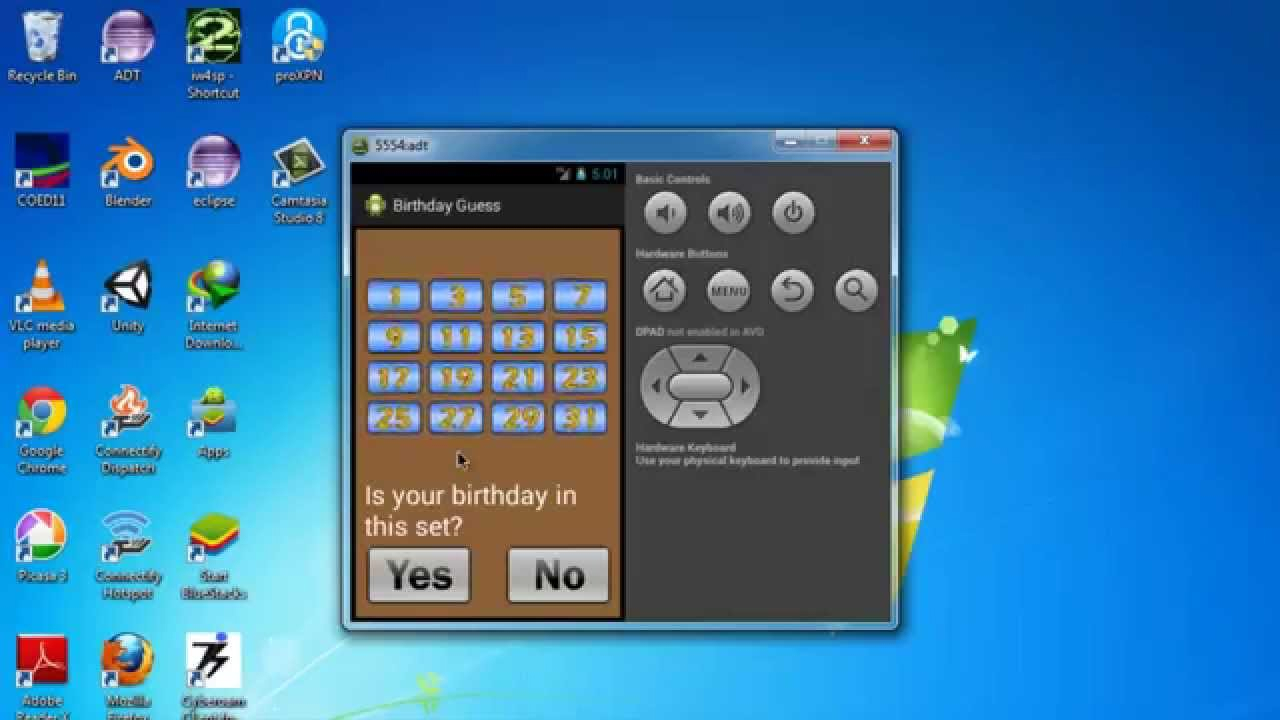
Tech Stack for Game Development
Whether your Android app development company or iOS app development company is developing for Android or iOS, the tech stack remains pretty consistent:
Unreal Engine:
The Unreal Engine developed by Epic Games provides advanced graphics and well-rounded Mobile Game App Development tools. It's one of the top choices for developers creating 3D games to achieve superb graphics.
Construct 3:
Its drag-and-drop interface allows one to avoid the requirements of severe coding.
GameMaker Studio 2:
It has the middle path as it provides programming with drag-and-drop features that would give the writer flexibility in the Science field.
Unity:
A free, viral 2D and 3D game platform. A favorable mention of this one is made based on its flexibility and powerful features.
Godot Engine -Praised for clean code and performance support of 3D and 2D games.
In terms of in-game spending, women outdo men.
DXB APPS - Your Game App Development Partner in UAE
At DXB APPS, a mobile app development company in Dubai, UAE, we develop mobile game apps for Apple stores. Our experienced staff of developers applies up-to-date technologies and follows app development trends to create attractive and high-transactional game apps.
As in any other gaming, there is stiff competition in the mobile gaming business. Hence, we dedicate ourselves to offering solutions that enable our clients to compete well. For mobile app development Abu Dhabi, our expertise extends further to provide high-end solutions for client requirements.
Conclusion
To develop a Mobile Game App Development, you need to mix suitable graphics, storylines, and challenging gameplay while providing monetization for this effort. If you've followed the steps above and selected the proper tech stack for your game, you should be well on your way to gaining visibility in a crowded marketplace.
FAQs
Q. What are the factors involved in developing a game app?
Mobile application development depends on the function, feature, and company that develops the mobile application.
Q. What time is required to create a game application?
It is specified from 1 to 2 months for games that do not require significant effort and can be mastered relatively quickly to 6-18 months for games that require more effort and learning time.
Q. What approximate time is required to develop a game application?
It takes one to two months to set simple games and six to eighteen months to set complex games.

